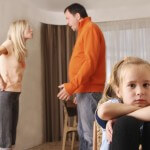New Year … New Divorce Challenges. Are Y
By Rosalind Sedacca, CCT Statistics bear it out. Every January the number of couples filing for divorce rises dramatically. And while the divorce rate has gone down the past few years, because of the economy, January is still the month with the highest divorce rate. When you think about it, the reason comes as no surprise. Many couples considering splitting decide to wait until after the holidays to break the news to their children. Others wait to take advantage of year-end job bonuses, if they come, so they’ll have the extra funds to cover attorney, moving and other related expenses. Regardless, it’s not the why that should be concerning us at this time – it’s the how. How are divorcing parents going to approach their separation or divorce – and how will it affect their innocent children? I, too, planned my separation at this time of year more than a











